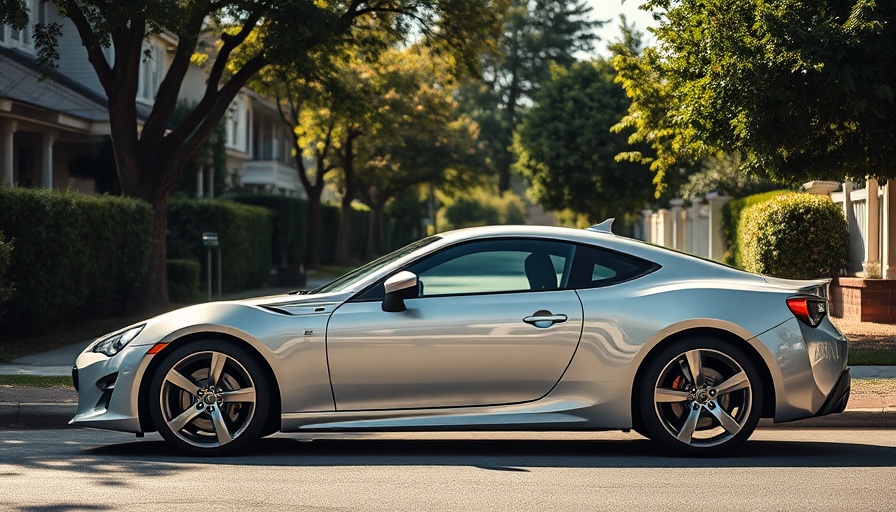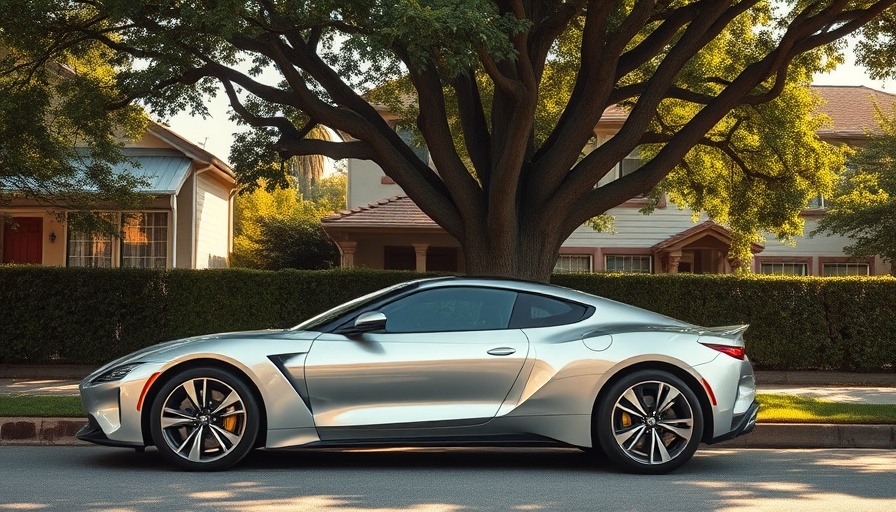
Understanding Hybrid Cars: A Quick Overview
Hybrid cars combine internal combustion engines with electric motors, making them an efficient choice for consumers seeking better fuel economy without sacrificing performance. Full hybrids can operate solely on electric power, leading to longer ranges and better fuel efficiency, while mild hybrids primarily use their gasoline engines enriched by electric assistance for efficiency improvements.
The Top Hybrids with Impressive EPA Driving Ranges
One of the key benefits of hybrid vehicles is their ability to cover substantial distances on a single tank of fuel. According to the most recent data, the 2025 Lexus LC 500h stands out with an impressive EPA-estimated driving range of 644 miles.
Here are a few notable hybrids that excel in driving range:
- Toyota Highlander: This model ranks high among hybrids, offering a combination of safety, convenience, and efficiency.
- Honda Accord HEV: Known for its reliability and performance, this sedan provides a great balance between a spacious interior and advanced fuel-saving technologies.
- Ford Escape Hybrid: Built for versatility and practicality, the Escape Hybrid offers hybrid technology in a compact SUV format, catering to families and individual needs alike.
Exploring the Lowest Ranked Hybrids for EPA Range
While some hybrids thrive in terms of efficiency, others struggle. Identifying these low-performing models is essential for customers who prioritize driving range in their vehicle purchase. Models that rank lower in fuel range often fall short due to poor engine efficiency or small fuel tank capacities.
Analyzing the lowest EPA-rated hybrids, consumers can avoid potential disappointments:
- Poorly Ranking Models: Details about hybrids that do not meet consumer expectations in driving efficiency should be highlighted. It's crucial to know which models may not deliver on range.
Fuel Efficiency Comparisons and the Broader Market Trends
The hybrid vehicle market is continually evolving, with manufacturers focusing more on electric capabilities. Understanding fuel efficiency in hybrids versus traditional gasoline vehicles reveals a transformation in consumer preferences toward more sustainable options.
As new hybrids emerge, we can predict that the focus will shift even more toward electric models, making fuel consumption comparisons vital for potential buyers. Notably, factors like real-world MPG reviews and fuel efficiency comparisons will become essential in the conversations surrounding car ownership.
What the Future Holds for Hybrids and Electric Vehicles
With the technological advances in car manufacturing, the future is bright for hybrid and electric vehicles. Expect innovations in battery technology to significantly improve range and efficiency, making these cars more appealing. Market forecasts suggest that hybrids will continue to bridge the gap as manufacturers transition to full electric solutions.
Key trends to watch include:
- Enhanced charging infrastructure
- Reduced battery costs
- Improved performance characteristics
Conclusion: Making an Informed Choice
Hybrids offer a compelling blend of performance and sustainability, but understanding which models deliver the best fuel efficiency and range is essential for any prospective buyer. With insights into both the best and worst ranges available, consumers will be better equipped to make informed decisions.
For anyone contemplating the purchase of a hybrid vehicle, our insights might help you navigate the complex landscape of car ownership, emphasizing the importance of understanding your vehicle’s capabilities and the available market options.
 Add Row
Add Row  Add
Add 




 Add Row
Add Row  Add
Add 

Write A Comment